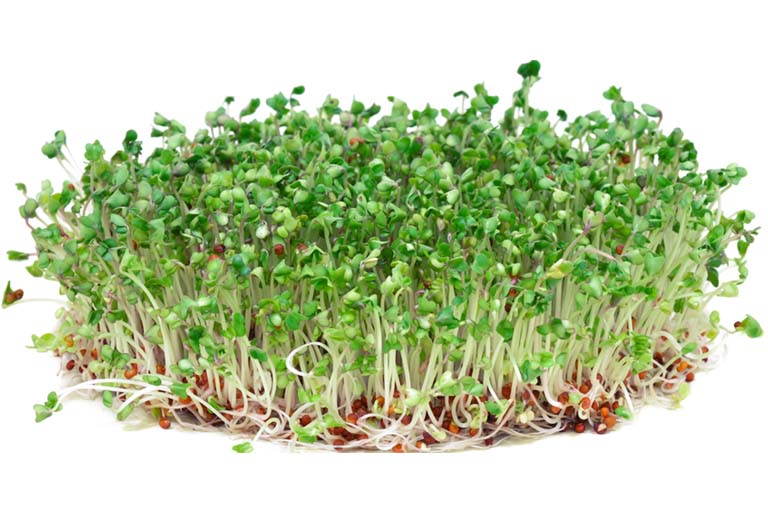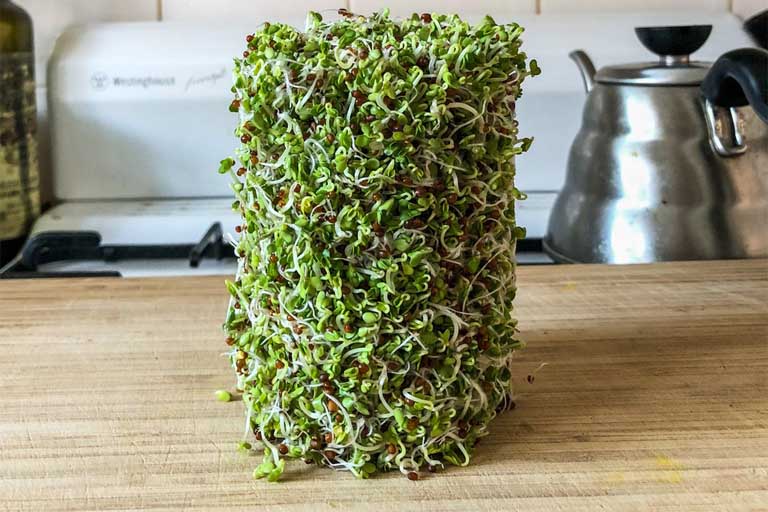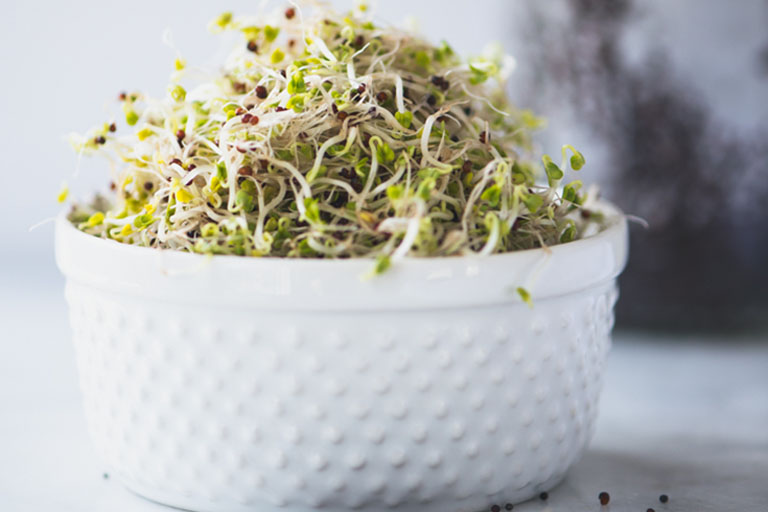The first time I had broccoli sprouts, they were sitting on top of a fancy California turkey sandwich with a schmear of avocado spread. The sprouts added a nice crunch and a new flavor, so I decided to buy some for myself. Then I saw them at the grocery store. If you've seen broccoli sprouts in the grocery store, you know they sit in the produce section next to the alfalfa sprouts. You also may have noticed the price of the adorable bright green plant tangles. Yikes! It's enough to make you leave them right where they are.
But, being budget conscious, I wasn't going to let the price stop me. With a tiny bit of research, I discovered something pretty darn handy. I could grow these little nutritious beauties at home with just a few items. The great news is, you can too. It's easy to do, takes less than a week, and takes very little space. What could be better?
What Exactly are Broccoli Sprouts?
Not surprisingly, broccoli sprouts are what they sound like, the sprouted broccoli seed. They're broccoli babies and are harvested and ready to eat in just a few short days.
They have a mild flavor with a bit of a peppery bite, making a yummy addition to your salad or sandwich. Now, if you're sticking your nose up because you hate broccoli, don't knock it til you try it. Broccoli sprouts don't taste anything like mature broccoli.
The thing that makes broccoli sprouts so great is they're not only versatile; they are chock-full of particular nutrients. Broccoli sprouts contain lots of nutrients, but the thing that makes them extra special is the sulforaphane. The sprouts house anywhere between 10 to 100 times more sulforaphane than mature broccoli.
If you're wondering what the heck sulforaphane is, you're not alone. That's where broccoli gets its magic. Sulforaphane is a chemical compound shown to fight cancer and prevent disease.
Broccoli Sprout Background Check
People have grown and eaten broccoli sprouts for thousands of years, but it wasn't until the 70s when their health benefits were studied. Even though reports were coming out from experts saying how great broccoli sprouts were for health and disease prevention, the trend didn't take off.
In the 90s, scientists discovered an additional health benefit in broccoli sprouts, glucoraphanin, which caught people's attention. The interest in broccoli sprouts started to take off, and the interest spread. The glucoraphanin everyone was so fascinated by, uses an enzyme inside our bodies to transform into sulforaphane.
In addition to the transformation into cancer-fighting sulforaphane, glucoraphanin has shown promise in preventing arthritis and changing your metabolism on a mitochondrial level.
Sprouting broccoli seeds became so popular that there was even a shortage of broccoli seeds for a time. The supply has since recovered, and broccoli sprouts are still an easy way to pack powerful nutrients into your diet.
The Need For Broccoli Sprouts
Why Broccoli Sprouts Are Good For You
The other benefits of broccoli sprouts
Get Growing at Home
Lucky for those not born with a green thumb, broccoli sprouts don't take a lot of gardening smarts. There are no special skills needed to grow these great little sprouts at home, and all you need are a few pieces of equipment.
Tools you need to get started
What you have to watch out for
Prep your sprouts for eating
How to Love Eating Your Sprouts
When you take into consideration how little effort it takes to grow your broccoli sprouts, coupled with the health benefits, there's no reason not to love these gems. The flavor is mild with a little peppery kick, adding a nice touch to any salad or sandwich. If you don't care for the taste, you can make them vanish in your smoothie, and still get all the benefits in your diet.
With proper rinsing and a few days, you can grow a snack that will add more than just flavor to your life.



Leave a Reply